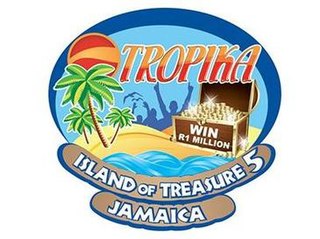Related Research Articles

Big Brother is a Dutch reality competition television franchise created by John de Mol Jr., first broadcast in the Netherlands in 1999 and subsequently syndicated internationally. The show features contestants called "housemates" or "HouseGuests" who live together in a specially constructed house that is isolated from the outside world. The name is inspired by Big Brother from George Orwell's novel Nineteen Eighty-Four, and the housemates are continuously monitored during their stay in the house by live television cameras as well as personal audio microphones. Throughout the course of the competition, they are voted out until only one remains and wins the cash prize.

The Milgram experiment(s) on obedience to authority figures were a series of social psychology experiments conducted by Yale University psychologist Stanley Milgram. They measured the willingness of study participants, 40 men in the age range of 20 to 50 from a diverse range of occupations with varying levels of education, to obey an authority figure who instructed them to perform acts conflicting with their personal conscience. Participants were led to believe that they were assisting an unrelated experiment, in which they had to administer electric shocks to a "learner". These fake electric shocks gradually increased to levels that would have been fatal had they been real.
Who Wants to Be a Millionaire? is an international television game show franchise of British origin, created by David Briggs, Mike Whitehill and Steven Knight. In its format, currently owned and licensed by Sony Pictures Television, contestants tackle a series of multiple-choice questions to win large cash prizes in a format that twists on many game show genre conventions – only one contestant plays at a time, similar to radio quizzes; contestants are given the question before deciding whether to answer, and have no time limit to answer questions; and the amount offered increases as they tackle questions that become increasingly difficult. The maximum cash prize offered in most versions of the format is an aspirational value in local currency, such as one million pounds in the UK or 75 million rupees in India.
Reality television is a genre of television programming that documents purportedly unscripted real-life situations, often starring unfamiliar people rather than professional actors. Reality television emerged as a distinct genre in the early 1990s with shows such as The Real World, then achieved prominence in the early 2000s with the success of the series Survivor, Idols, and Big Brother, all of which became global franchises. Reality television shows tend to be interspersed with "confessionals", short interview segments in which cast members reflect on or provide context for the events being depicted on-screen; this is most commonly seen in American reality television. Competition-based reality shows typically feature the gradual elimination of participants, either by a panel of judges, by the viewership of the show, or by the contestants themselves.

The 1950s quiz show scandals were a series of scandals involving the producers and contestants of several popular American television quiz shows. These shows' producers secretly gave assistance to certain contestants in order to prearrange the shows' outcomes while still attempting to deceive the public into believing that these shows were objective and fair competitions. Producers fixed the shows sometimes with the free consent of contestants and out of various motives: improving ratings, greed, and the lack of regulations prohibiting such conspiracy in game show productions.
There's Something About Miriam is a British reality television series broadcast by Sky1. The six-episode series premiered on 22 February 2004 and concluded on 24 March 2004. Set in Ibiza, Spain, the series depicted six men in competition for a £10,000 reward over who could make the best impression on 21-year-old Mexican model Miriam Rivera. The men were required to compete in various physical challenges in addition to going on individual and group dates with Rivera. In the final episode, Rivera selected the one contestant who left the best impression on her; upon selection, Rivera revealed to the contestants that she was a transgender woman who had not yet undergone gender-affirming surgery. The series was hosted by Welsh television presenter Tim Vincent.
Deal or No Deal is the name of several closely related television game shows, the first of which was the Dutch Miljoenenjacht. The centerpiece of this format is the final round which is played with up to 26 cases, each containing randomly assigned sums of money. After the player for the case game is determined, this contender claims one case or a box at the start of the game, without its contents being revealed. The contestant then chooses the other cases or boxes, one at a time, to be immediately opened and removed from play. Throughout the game, the player is offered an amount of money or prizes to quit, being asked the titular question, "Deal or no deal?" If the contestant rejects every deal and eliminates all the other cases or boxes, the player keeps the money that was in the original case or box. Thus, the contestant "wins" depending on whether the player should have taken one of the deals or should have held onto the original case or box until the very end.

The Challenge is a reality competition show on MTV that is a spin-off of two of the network's reality shows, The Real World and Road Rules. Premiering in 1998, it originally featured alumni from these two shows, casting for The Challenge has slowly expanded to include contestants who debuted on The Challenge itself, alumni from other MTV franchises including Are You the One?, Ex on the Beach, Geordie Shore, siblings and friends, and from other non-MTV shows, competitions, and modeling. The contestants compete against one another in various extreme challenges to avoid elimination. The winners of the final challenge win the competition and typically share a large cash prize. The Challenge is currently hosted by T. J. Lavin.

Fort Boyard is a French game show created by Jacques Antoine that was first broadcast on 7 July 1990. Many foreign versions of the show, totalling over 1,800 episodes, have aired around the world since 1990.

Ithaca College Television (ICTV) is Ithaca College's student-run television station. It's the largest student-run organization on Ithaca's campus. Founded in 1958 as the country's first student-run cable television station, ICTV provides original, student-produced programming to approximately 26,000 households in Tompkins County, New York through Spectrum Cable. Additionally, ICTV offers a livestream of its programming on its website, ICTV.org, along with on-demand episodes from past and present shows.

Total Drama Island is the first season of Total Drama, a Canadian animated comedy television series created by Tom McGillis and Jennifer Pertsch. The series premiered in Canada on Teletoon on July 8, 2007, and ran for 26 episodes, each 22 minutes in duration with a special 44-minute season finale.

Survivor is the American version of the international Survivor reality competition television franchise, itself derived from the Swedish television series Expedition Robinson created by Charlie Parsons which premiered in 1997. The American series premiered on May 31, 2000, on CBS. It is hosted by Jeff Probst, who is also an executive producer along with Mark Burnett and the original creator, Parsons.

The Mole is an American reality game show originally broadcast on ABC from 2001 to 2008, and reintroduced on Netflix in 2022. It is based on other versions of the original Belgian TV series De Mol broadcast in many countries. The Mole was produced by Stone Stanley Entertainment for its first four seasons. It was canceled but was later picked up again after a four-year hiatus. The fifth season was produced by Stone & Co. Entertainment. Netflix picked up the show after a fourteen-year hiatus. The sixth season premiered on October 7, 2022 and was produced by Eureka Productions.

Wipeout is an American comedy television game show. It features contestants competing in the "World's Largest" obstacle course which originally aired on ABC from June 24, 2008, to September 7, 2014. In 2021, the show was rebooted on TBS, with John Cena, Nicole Byer, and Camille Kostek as hosts.

Big Brother Canada is a Canadian television reality game show based on the Dutch reality show of the same name, which is part of the wider Big Brother franchise. The first season of the series premiered on February 27, 2013, on Slice. Starting with the third season, the show is aired on Global. The series is produced by Endemol and Insight Productions. It is hosted by Arisa Cox, who is concurrently an executive producer starting from the ninth season.

Tropika Island of Treasure is a South African reality competition television series that currently screens on SABC 3. The show features an equal number of South African celebrities and public contestants competing in a luxurious, paradise-island location for a cash prize. Each episode the players compete in an Island Game. Each week's Island Game winner listens to the other players pleas to stay on the island, and they alone have the power to decide who stays and who goes by uttering the words "Pack your bags and get off my Island". The final Island Game winner receives a prize of R1 million. The format is owned and produced by Stimulii Licensing and broadcast on SABC3.
Opposite Worlds was an American reality game show that originally aired on the cable channel Syfy. The format of the show was based on the successful Chilean series Mundos Opuestos which aired from 2012 to 2013 on the national free-to-air channel Canal 13. The series revolved around a group of strangers divided into two teams, and made to live in a house divided by "future" and "past" themes. The teams competed in weekly challenges to determine where they would live. One contestant, known as the Decider, selected two contestants to compete in a challenge, with the loser being eliminated from the game. The winner of the series, determined after six weeks, won a $100,000 prize. The series was hosted by Luke Tipple. The show premiered on January 21, 2014 and aired on Tuesdays and Wednesdays, with the latter being a live elimination episode. The show was cancelled after one season.

Game2: Winter was a social experiment and media stunt promoted as a Russian survival reality television program produced by Novosibirsk entrepreneur Yevgeny Pyatkovsky that was set to premiere in July 2017. The show caught the attention of the press when the show stated that its rules would allow crimes such as rape and murder which sparked outrage online. The show has been compared to a "real-life Hunger Games".

The Circle is a reality competition television franchise, first broadcast in the United Kingdom on Channel 4 in 2018, and subsequently syndicated internationally by Netflix. Each version in the franchise features contestants who live in different apartments in a complex that is isolated from the outside world. The players are continuously monitored during their stay in the apartments by cameras as well as personal audio microphones. Throughout the course of the competition, they are eliminated, or "blocked", until only one remains and wins the cash prize.
References
- ↑ Chazan, David (March 18, 2010). "Row over 'torture' on French TV". BBC News. Retrieved 18 March 2010.
- ↑ Keaton, Jamey (March 17, 2010). "Fake TV show has players electrocuting others" . Retrieved 18 March 2010.
- ↑ "Fake TV Game Show 'Tortures' Man, Shocks France". npr.org . Retrieved 2010-10-19.
- ↑ "Fake torture TV 'game show' reveals willingness to obey". 2010-03-17. Archived from the original on 2010-03-23. Retrieved 2010-03-18.